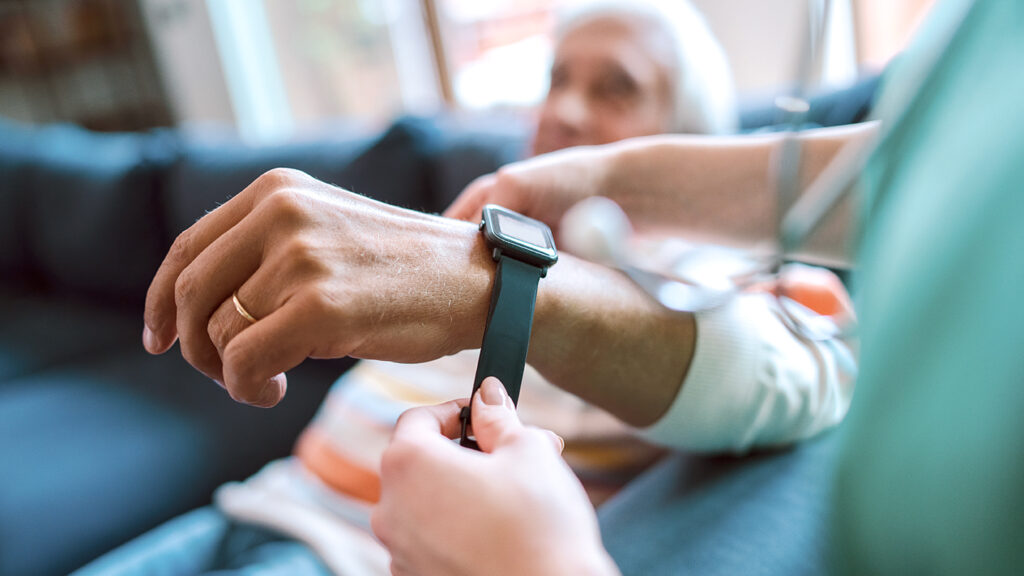
New monitoring tools can help caregivers assess older adults living with advanced dementia and help prevent emergencies such as falling. But not many studies have evaluated whether this cohort will accept certain devices, such as wearables.
Fortunately, most seniors with late-stage dementia are willing to accept a wearable device that can monitor their daily habits, such as sleep cycles, a new study has found.
Wearables that capture sleep habits, in particular, can provide valuable insights into a resident’s dementia progression, the researchers stated, adding that reducing episodes of agitation and aggression also is important for both people living with dementia and their caregivers.
The study involved 20 participants, all aged more than 80 years, using an “actigraphy” watch, which measures users’ patterns of activity and rest over days and weeks.
Although overall, the participants accepted the technology, the study revealed a few more nuanced findings.
Some of the participants appeared put off by the fact that the actigraphy device had no watch face or time-reading function and required extra encouragement from staff members to use the tool.
“A watch is such a familiar item that even in late-stage dementia, the lack of a watch face is recognized as an anomaly and contributes to reduced compliance,” the study authors wrote.
In addition, the study participants bucked the conventional trend of those with more severe dementia being more resistant to tech approaches. In the actigraphy study, those with greater cognitive decline appeared more compliant to wearing the watch device, the researchers noted, although they added that this finding may have been due to the residents reaching a certain threshold at which they were “much less curious and sensitive to new stimuli.”
Despite the cognitive issues of the study participants, the researchers said they took steps to make sure they had consent from the older adults or their family/caregivers, and when possible, solicited their opinions and feedback on the wearable.
The study was published Monday in the Alzheimer’s Association’s official journal, Alzheimer’s & Dementia.


